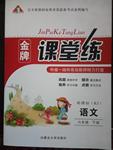题目内容
B [2015 •长春普通高中三检]
Raised in a motherless home, my father was extremely tight-fisted towards us children. His attitude didn't soften as I grew into adulthood and went to college. I had to ride the bus whenever I came home. Though the bus stopped about two miles from home, Dad never met me, even in severe
weather. If I grumbled, he'd say in his loudest father-voice, "That's what your legs are for!"
The walk didn't bother me as much as the fear of walk?ing alone along the highway and country roads. I also felt less than valued that my father didn't seem concerned about my safety. But that feeling was cancelled one spring evening.
It had been a particularly difficult week at college after long hours in labs. I longed for home. When the bus reached the stop, I stepped off and dragged my suitcase to begin the long journey home.
A row of hedge (树篱)edged the driveway that climbed the hill to our house. Once I had turned off the highway to start the last lap of my journey, I always had a sense of relief to see the hedge because it meant that I was almost home. On that particular evening, the hedge had just come into view when I saw something grey moving along the top of the hedge, moving towards the house. Upon closer observation, I realized it was the top of my father's head. Then I knew, each time I'd come home, he had stood behind the hedge, watching, until he knew I had arrived safely. I swallowed hard against the tears. He did care, after all.
On later visits* that spot of grey became my watchtow-er. I could hardly wait until I was close enough to watch for its secret movement above the greenery. Upon reaching home, I would find my father sitting innocently in his chair. "So! My son, it's you!" he'd say, his face lengthening into pretended surprise.
I replied, "Yes, Dad. It's me. I'm home.,,
5. What does the underlined word "grumbled" in Paragraph 1 probably mean?
A. Accepted happily. B. Explained clearly.
C. Agreed willingly. D. Spoke unhappily.
6. What made the author feel upset was .
A. the tiredness after long hours in labs
B. the fear of seeing something moving
C. the feeling of being less than valued
D. the loneliness of riding the bus home
7. The author's father watched behind the hedge because
A. he was concerned about his son's safety
B. he wanted to help his son build up courage
C.he didn't want to meet his son at the doorway
D. he didn't think his son was old enough to walk alone
8.Which of the following can be the best title for the pas?sage?
A. My father's secret B. My college life
C. Terrible journey home D. Riding the bus alone
B [文章大意]本文是一篇记叙文。作者开始时误解了父亲,一次偶然的机会使作者理解了父亲,感受到了深深的父爱。
5. D词义猜测题。上文都是对父亲的抱怨,故此处应是"不高兴地说",故选D。 accept happily高兴地接受;explain clearly清楚地解释;agree willingly心甘情愿地同意;speak unhappily不高兴地说。
6. C 细节理解题。根据文章第二段的"I also felt less than valued that my father didn't seem concerned about my safety."可知作者认为父亲不关心自己的安全,因此作者感觉自己不被重视,故选C.
7. A 细节理解题。根据文章第四段的"Then I knew, each time I'd come home, he had stood behind the hedge, watching, until he knew I had arrived safely."可知,父亲担心作者的安全。故选A。
8.A主旨大意题。文章字里行间都透露着父亲对作者的关爱,作者由开始的不理解到发现父亲的秘密,感受到了如山的父爱。故选A。

 金牌课堂练系列答案
金牌课堂练系列答案 三新快车金牌周周练系列答案
三新快车金牌周周练系列答案